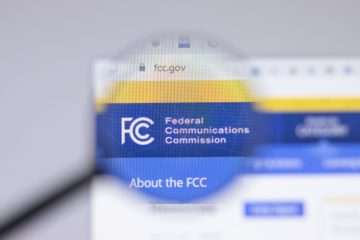The Market Institute President Charles Sauer has a new article in Real Clear Markets.
In recent years, the Federal Trade Commission (FTC) has been increasingly criticized for its overreach and excessive regulations, which are hindering economic growth, stifling innovation, and limiting consumer choices. In this article, Sauer explores how the FTC’s heavy-handed approach has become a bully on the playground of prosperity.
“It is hard to explain to people how difficult it is to start a business when they see images on social media of successful entrepreneurs walking around in fancy clothes, driving expensive cars, and jet-setting around the country. But what social media doesn’t show are the failures, the risk, the heartbreak, and the work and determination that went into that lifestyle. So, entrepreneurs are often vilified.
Jealousy is a natural reaction, but if looked at correctly, jealousy can be used as motivation to take the same risks, make the same jumps, and take the steps necessary to reach the highest levels of success.
Or, jealousy applied incorrectly can lead to what the Biden Administration is doing – with the Federal Trade Commission and its Chair Lina Khan leading the way. They are attacking businesses like no other administration has attacked businesses and entrepreneurs. Companies are being forced to take defensive stances instead of expanding and growing as Biden’s FTC weaponizes lawsuits, moves without Congress, and has seemingly taken on the role of economic bully.
All this while the country struggles with high gas prices, ever-increasing grocery bills, and now rising interest rates.
Under Lina Khan, one of the FTC’s tactics is to file lawsuits which are unlikely to be successful, but which send a message to the market and Congress. This is lobbying through the courts. Under Khan’s leadership, the FTC has taken a guilty until proven-innocent approach, a form of McCarthy-esque entrepreneur hunting using “reasons to believe” as a suitable justification to go after a company. Fortunately, she hasn’t been very successful in the courts. Embarrassingly, the Wall Street Journal also recently called out the Chairwoman, writing “Does Lina Khan ever win a case?” after a federal judge claimed that it didn’t appear that the FTC had done their “homework” in regard to the FTC’s attempt to block Meta’s acquisition of Within Unlimited. However, that doesn’t mean that her lawsuits aren’t affecting the economy.
It is important to note that it isn’t just Meta, Google, and Amazon that are the focus of Khan’s bullying. One of the largest and most impactful examples of FTC overreach is aggressive litigation against the Idaho tech company, Kochava.
This is a company that few know about, but which is one of the providers of the data backbone of our modern society. Last year the FTC filed a lawsuit against Kochava, claiming they were selling sensitive geolocation data. However, the agency has failed to define what constitutes a “sensitive location,” and therefore, the whole data industry is currently operating in a gray area. The use of geolocation data, is common practice for countless societal amenities such as mapping and directions, urban planning, investment research, and consumer insights.
Geolocation data is the cornerstone of modern society, and Lina Khan just backed the whole industry into the corner. It is beyond appalling.
Fortunately, the tide seems to be turning – the playground is starting to organize against the bully. In fact, in a high-profile op-ed in the Wall Street Journal, FTC Commissioner Christine Wilson recently stepped down, pointing out the many flaws in the leadership of the agency and the way that Chairwoman Khan has centralized power – stripping many competent staff of responsibilities and often ignoring their input altogether. And, the U.S. Chamber of Commerce – like a bodyguard for entrepreneurship – recently threatened to sue the FTC over one of their proposals to ban non-compete clauses.
Congress has started getting the message too. Sen. Mike Lee, House Republicans, and Energy & Commerce Committee members have all criticized Chairwoman Khan’s leadership of the FTC. Senator Lee’s letter to FTC Chairwoman Khan expressed concerns about the future of the FTC, the competitive market, and Khan’s “guilty until proven innocent” approach to law enforcement stating,
“The unifying theme of these developments is a progressive push to consolidate power and burden American businesses. For the sake of our antitrust enforcement regime, competitive markets, and the American economy, I hope you will change course.”
Read the rest of the article at Real Clear Markets by clicking here.


